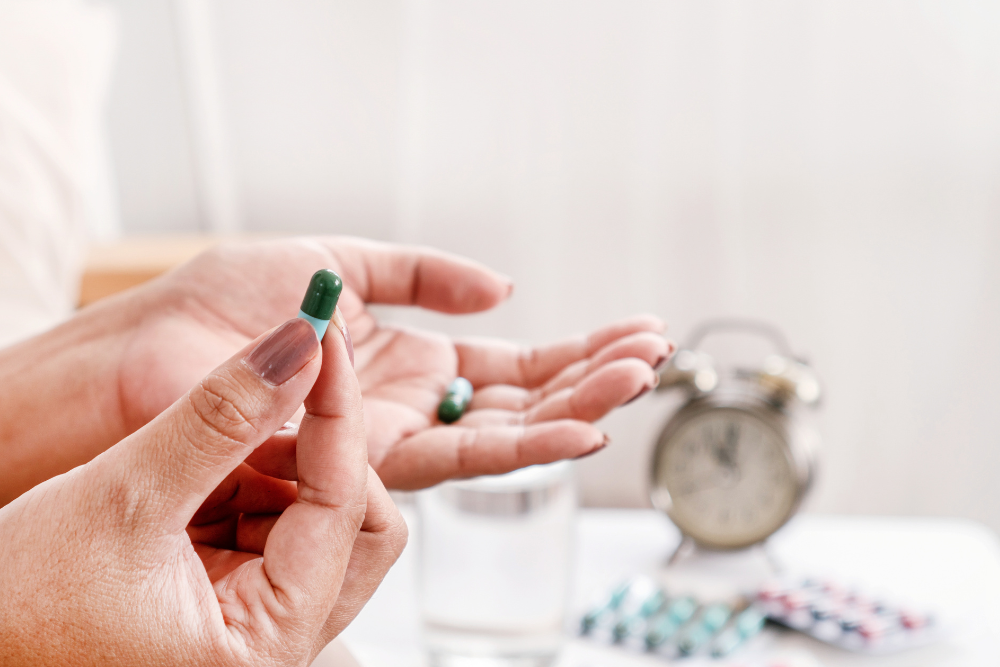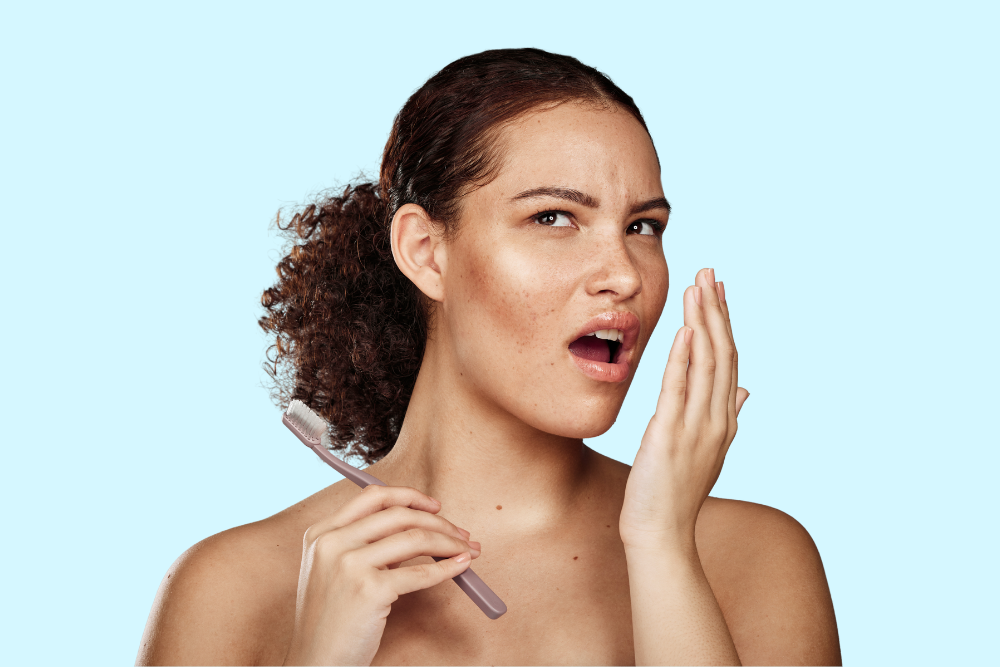Thrush, a common health issue, often leaves people puzzled and uncomfortable. Caused by yeast overgrowth, it can affect various body parts. This article is your guide to understanding the root causes, recognising symptoms, and finding effective treatments for thrush. Whether you’re dealing with a recent diagnosis or just want to boost your knowledge, join us as we explore what thrush is, how it shows up, and ways to manage and prevent thrush infection.
Common Causes of Thrush
Vaginal thrush is primarily caused by an overgrowth of a yeast called candida albicans, which naturally resides in the bowel and can also inhabit the vagina, mouth, and skin. This overgrowth can lead to symptoms of thrush. Factors that can contribute to this overgrowth include elevated levels of oestrogen, which may increase susceptibility to thrush.¹
Additionally, several other factors can increase the likelihood of developing thrush. These include taking antibiotics, being pregnant or breastfeeding, having certain health conditions such as diabetes or immune system disorders, taking specific medications like higher-dose combined oral contraceptives or menopausal hormone therapy, and having vulval skin conditions.¹
It’s important to note that thrush is not classified as a sexually transmitted infection (STI), distinguishing it from conditions transmitted through sexual contact.
It’s essential to note that while these factors contribute to the development of thrush, the specific causes can vary from person to person. If someone suspects they have thrush, seek medical advice for an accurate diagnosis and appropriate treatment.

Recognising the Symptoms
The symptoms of vaginal thrush typically include itching or burning sensations around the vulva, which are the most common complaints. Other noticeable symptoms may include:
- A thick, white or creamy vaginal discharge resembling cottage cheese.
- Pain or discomfort during sexual intercourse.
- A stinging sensation when urinating.
- Swelling or redness around the vulva and vagina.
- Splits or cracks in the skin of the vulva.¹
It’s worth noting that some individuals may have vaginal thrush without experiencing any symptoms, in which case treatment is not necessary. This asymptomatic presence does not typically require medical intervention.
It’s important to seek medical attention if these thrush symptoms arise, especially for individuals with weakened immune systems or underlying health conditions, as prompt diagnosis and treatment are essential for managing thrush effectively.
Treating Vaginal Thrush
Treatment for vaginal thrush aims to reduce the yeast population to alleviate symptoms. Over-the-counter options available from local pharmacies include:
Antifungal creams or vaginal suppositories (pessaries)
These are inserted into the vagina using a special applicator and typically used for one to 7 days, depending on the product. In some cases, a second course of treatment may be necessary. Prolonged use of topical treatments may occasionally lead to skin irritation. It’s important to note that thrush creams can weaken condoms, so it’s advised to apply treatment after sexual intercourse.¹
Thrush Tablet
This oral treatment is as effective as creams or suppositories. It is generally more costly than topical options and is not recommended for use during pregnancy. If you are taking other medications or are pregnant, it’s advisable to consult your doctor or pharmacist before taking oral medication for thrush.¹
It’s important for individuals experiencing symptoms of thrush to consult a healthcare professional for an accurate diagnosis and appropriate treatment. Self-diagnosis and treatment without professional guidance may lead to ineffective outcomes and potential recurrence of the infection. Additionally, those with persistent or severe symptoms or weakened immune systems should seek prompt medical attention.

Preventing Thrush Recurrence
Vaginal thrush can often be prevented by adopting certain practices:
- Wear loose clothing and cotton underwear: This helps to keep the genital area dry and ventilated, reducing the likelihood of yeast overgrowth.
- Practice good hygiene: Wash your hands before touching the genital area and always wipe from front to back after using the toilet. Remember to wash your hands afterwards as well.
- Avoid soaps and sprays: These products can disrupt the natural balance of bacteria and yeast in the genital area, increasing the risk of thrush.
- Practice safe sex: Avoid having vaginal intercourse immediately after anal intercourse. Thoroughly wash and use a new condom before engaging in vaginal intercourse to prevent transferring bacteria.
Regarding yogurt and thrush, while there is no strong evidence supporting the use of natural yogurt or lactobacilli-containing products to treat thrush internally, natural yogurt can provide soothing relief for external discomfort. Applying plain yogurt directly to the vagina is not typically recommended as an effective treatment for thrush.¹
By incorporating these preventive measures into your routine, you can help reduce the chances of developing vaginal thrush and maintain better overall vaginal health.
Individual responses may vary, so consulting with a healthcare professional for personalised guidance is essential, especially if thrush persists despite preventive efforts. Regular monitoring and lifestyle adjustment can significantly reduce the likelihood of thrush recurrence.
Get on top of thrush – get treatment with hub.health!
Source
- Healthdirect. Vaginal thrush. Available from: https://www.healthdirect.gov.au/vaginal-thrush. Accessed June 14, 2024.




